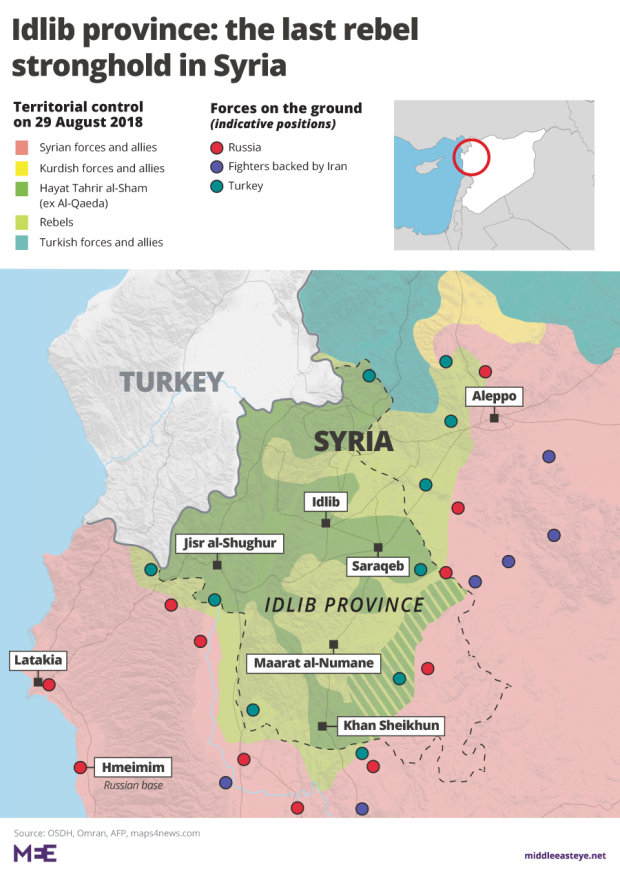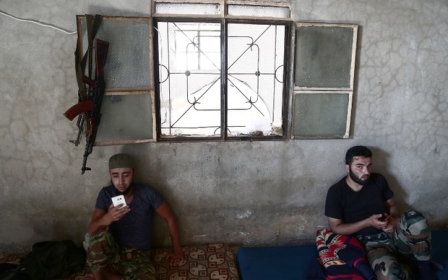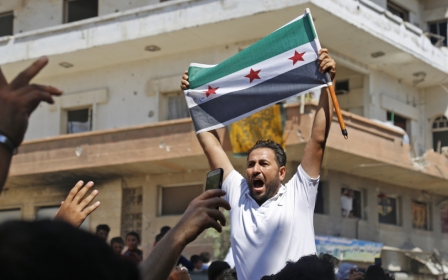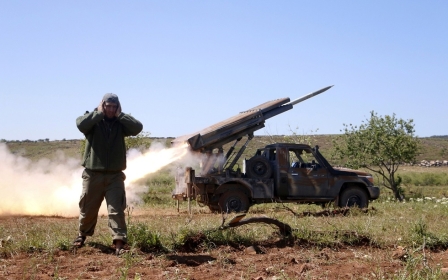International pressure mounts to avoid 'massacre' in Syria's Idlib
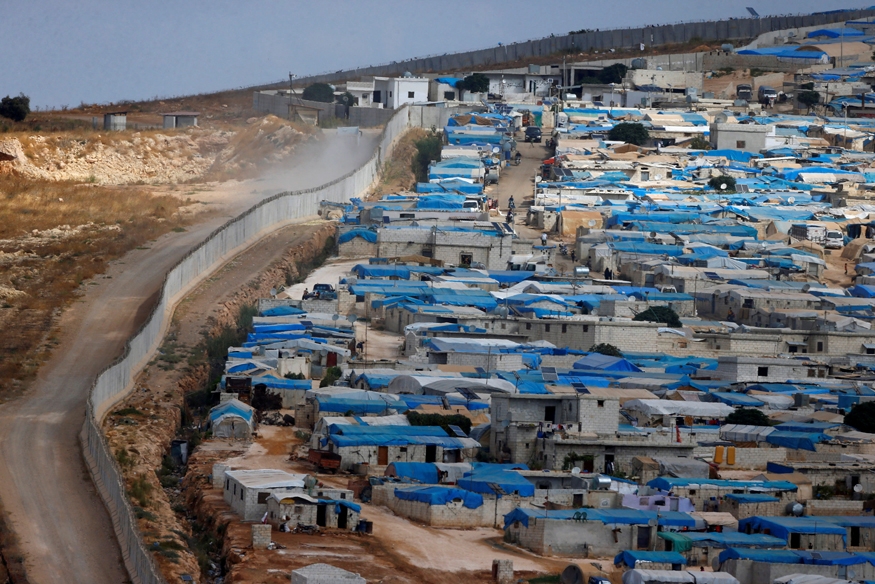
International calls mounted on Wednesday to avoid a "massacre" by government forces in Syria's last rebel-held province of Idlib, two days before a summit among key powers backing the government and opposition.
The United Nations says almost three million people live in Idlib and global concern has risen in recent days over a threatened assault to oust rebels and militants from the northwestern province and surrounding areas.
US President Donald Trump warned that "the world is watching" as Syrian troops mass on the edges of the province that borders Turkey, raising fears of a humanitarian disaster.
"That cannot be a slaughter. If it's a slaughter, the world is going to be very, very angry. And the United States is going to be very angry, too," Trump told reporters in the Oval Office as he met the emir of Kuwait.
Turkey's President Recep Tayyip Erdogan urged Damascus against launching a battle to retake Idlib, the last major chunk of Syria still in opposition hands.
"God forbid, a serious massacre could take place if there is a rain of missiles there," said Erdogan, whose country has supported Syrian rebels.
He spoke two days before he is set to meet the presidents of Iran and Russia in Tehran to discuss the future of the province.
Friday's summit in Tehran including Erdogan, Russian President Vladimir Putin and Iran's President Hassan Rouhani is expected to determine the scope and timing of any assault on Idlib.
On Tuesday, the UN peace envoy for Syria urged Erdogan and Putin to speak on the phone before Friday's summit.
Staffan de Mistura called for efforts "to avoid that the last probably major battle of the Syrian territorial conflict... ends in a bloodbath".
Idlib is under the control of various armed groups. They include cells aligned under the banner of Hay’at Tahrir al-Sham (HTS), led by al-Qaeda’s former Syrian branch, and the newly formed National Front for Liberation - a Turkish-backed alliance bringing together Ahrar al-Sham, Noureddine al-Zinki and other rebel factions.
The government holds a small southeastern sliver.
The United Nations and aid groups have warned that a military campaign may spark one of the worst humanitarian catastrophes in a war that has already killed more than 350,000 people and displaced millions.
Many of those living in Idlib are rebels and civilians who were bussed out of their hometowns in other parts of the country that have come back under government control.
Turkey, Russia and Iran last year designated Idlib a so-called "de-escalation zone," but that deal did not cover former al-Qaeda affiliate HTS.
On Tuesday, Russian warplanes resumed air strikes on Idlib after a 22-day pause.
Air raids across the province killed at least 13 civilians, including six children, the Syrian Observatory for Human Rights war monitor said.
Moscow said four of its jets "inflicted strikes by high-precision weapons" on targets belonging to HTS.
On Wednesday, government artillery and rocket fire targeted several areas in the province, including the HTS-held town of Jisr al-Shughur, according to the Britain-based Observatory, which relies on a network of sources inside Syria.
President Bashar al-Assad's government has retaken large swathes of the country from rebels and militants since Russia intervened militarily on its side in 2015.
Moscow has accused armed groups in Idlib of sending weaponised drones to attack the Hmeimim airbase that it uses in the adjacent province of Latakia.
US Defence Chief Jim Mattis later dismissed reports that fighters inside Idlib may hold such weapons.
New MEE newsletter: Jerusalem Dispatch
Sign up to get the latest insights and analysis on Israel-Palestine, alongside Turkey Unpacked and other MEE newsletters
Middle East Eye delivers independent and unrivalled coverage and analysis of the Middle East, North Africa and beyond. To learn more about republishing this content and the associated fees, please fill out this form. More about MEE can be found here.


